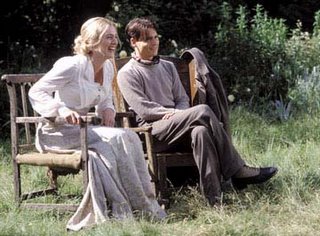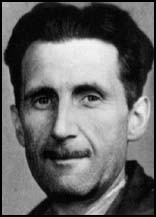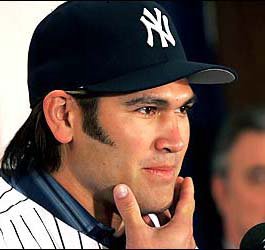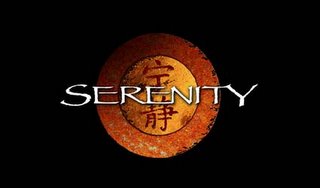
Returning to the first meeting between Malcolm Reynolds and The Operative in this year's hands-down freedom film fest winner,
Serenity.
"I've seen your war record," says the Operative, brilliantly played by Chiwetel Ejiofor. "I know how you must feel about the Alliance," which crushed the forces of independence at the critical Battle of Serenity Valley.
"You really don't," Reynolds replies.
The Operative, and I in the audience, interpreted this response as meaning the depths of his hatred for the Alliance go beyond imagination. But writer-director Joss Whedon has a different idea - one that goes back to Reynolds' line early on: "War's been over for a long time. We're all just folk now."

I mentioned the next exchange the other day: The Operative tells Reynolds he can't beat the Alliance, and the response is, "I got no need to beat you. I just want to go my way."
Taken as a whole, Reynolds' actual feeling for the Alliance (confirmed by Whedon) is not blind hatred but indifference. He just wants to live his life as free a man as he can be - which is why he avoids the "civilized" inner worlds and makes his living in the less regulated but wild and woolier outer planets. The simmering unresolved anger we feel throughout the film (and, earlier, the TV series
Firefly) is not about being defeated by the Alliance but the betrayal of the Independents' leaders, who ordered him to surrender instead of coming to his assistance in Serenity Valley.
There's a reason a cliche's a cliche: It is a truth that is told repeatedly until the meaning is almost lost. But Malcolm Reynolds has the courage to change the things he has the power to change, the serenity to accept the things he can't, and the wisdom to know the difference. The Operative's miscalculation of Reynolds is all wrapped up in his false assumption that Reynolds is consumed by the passion of hatred.
An examination of the screenplay, which is published in
Serenity: The Official Visual Companion, reveals one exchange from this crucial scene was left on the cutting room floor: Referring to the central chase of the film, The Operative says, "I need her, Captain. River is - my purpose and I will gather her to me. The brother as well. Whatever else happens is incidental - in the greater scheme."

"Why is it," Reynolds replies, "that the greater scheme always makes everything not that great?"
Whedon calls this the dark underbelly of utopia - whenever someone tries to impose a greater scheme on us folk, the result is an assault on our freedom to live our lives in peace.
Perhaps in the Serenity Prayer, and in
Serenity the movie, lie the answers to maintaining one's sanity in a world where the boss makes you pee in a cup and monitors your e-mail, where wanting to board an airplane requires you to submit to invasive searches of your person and property, where powerful people from Washington on down to City Hall - or rather small people who think they're powerful - desire to micromanage your life in the name of a greater scheme.
I don't fly anymore, for example, because I understand it's something I can't change: My fellow flyers
want to be mugged and invaded because they believe it will make the flight more safe. Fair enough. I'll use another method to go my way - at least until I find a way to change my fellow travelers' attitude.
The serenity to accept the things I can't change is the easy part. The thing that grates a free man is when he accepts the things that he
can change but has neither the wisdom to recognize that nor the courage to do something about it.
In the film, Malcolm Reynolds and his crew get wisdom. They always had the courage. Hiding in plain sight, in what appears to be a simple action adventure movie, is this inspirational message for freedom lovers. It turns out
Serenity is not an ironic name for the spaceship or this fast-paced film after all. It's perfect.
 Wouldn't ya know it, I finish off my little "Best of 2005" post and sit down the night of Dec. 30 to be blown away by a movie that deserves to be on the list.
Wouldn't ya know it, I finish off my little "Best of 2005" post and sit down the night of Dec. 30 to be blown away by a movie that deserves to be on the list.





















